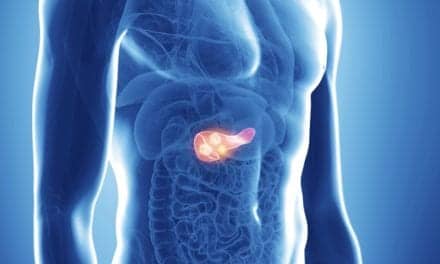Summary:
Immunovia’s next-generation pancreatic cancer test has been selected for a US-government-funded study to evaluate biomarker tests for monitoring pancreatic cystic neoplasms.
Takeaways:
- Study Involvement: Immunovia’s test is part of a NIH-funded study, led by Dr. Diane M. Simeone, to assess biomarkers for pancreatic cystic neoplasms (PCNs).
- Clinical Trials: The study includes three sub-studies focused on the test’s performance and accuracy, early-stage cancer detection, and annual surveillance, with the first study expected to complete in 2025.
- Funding and Collaboration: Supported by a $4.5 million NIH grant, the study will be conducted through the PRECEDE Consortium, aiming to validate effective early detection of pancreatic cancer while minimizing Immunovia’s financial burden.
Immunovia, the pancreatic cancer diagnostics company, today announces that the company’s next-generation test to detect pancreatic cancer has been selected for inclusion in a US-government-funded study to evaluate biomarker tests for monitoring cystic tumors of the pancreas.
The study’s lead author is Diane M. Simeone, an internationally recognized expert in pancreatic neoplasms and the director of Moores Cancer Center at University of California San Diego Health.
Assessing Pancreatic Cystic Neoplasm Biomarkers
The study will assess the use of biomarker tests to detect pancreatic cystic neoplasms (PCNs, or pancreatic cysts) that develop into pancreatic cancer. The overall clinical program will consist of three complementary studies:
- Study 1 will define the performance and accuracy of blood-based biomarkers through a retrospective study of 200 blood samples that includes early-stage pancreatic cancer cases and controls.
- Study 2 will evaluate the ability of the biomarker tests to detect early-stage pancreatic cancer in patients undergoing surgery to remove pancreatic cysts suspected to be cancerous.
- Study 3 will examine biomarker performance for detection of early-stage cancer in a group of individuals undergoing annual surveillance of cystic tumors.
The first study should be completed in 2025; the other two will last approximately five years.
The study is being funded by a $4.5 million grant from the US National Institutes of Health (NIH). Immunovia’s financial commitment will be limited to the company’s costs to test the samples received from participating institutions.
“Our inclusion in this program makes a strong statement about the promise of Immunovia’s next-generation test,” says Jeff Borcherding, Immunovia’s CEO. “We welcome the opportunity to validate the accuracy of our test and assess its clinical use in collaboration with top experts at leading U.S. multidisciplinary pancreatic centers. This NIH-funded program is a tremendous opportunity to rigorously study our test in patients with pancreatic cystic tumors and generate clinical data at a fraction of what it would cost the company to fund the study on our own.”
Consortium Study
The study will be conducted through four institutions in the PRECEDE Consortium, an international, multi-institutional collaborative group of experts seeking to increase survival for pancreatic cancer patients by improving early detection, screening, risk modeling and prevention for those at risk. Dr. Simeone is the principal investigator and executive committee chair of the PRECEDE Consortium. She is also a member of Immunovia’s Scientific Advisory Board.
“In this grant, our goal is to validate an effective early detection blood test for pancreatic cancer in patients with cystic tumors of the pancreas,” says Simeone. “We are eager to work with Immunovia on a blood test that can predict who needs surgery for a pancreatic cyst, and who can be safely monitored without the need for surgery, a critical unmet need for these patients.”
What Are Pancreatic Cystic Neoplasms?
Pancreatic cystic neoplasms (PCNs) are tumors of the pancreas that are relatively common and have a low, but measurable risk of degeneration into pancreatic cancer. Branch-duct intraductal papillary mucinous neoplasms (IPMN), the most common incidentally discovered PCNs, have a risk of malignancy approaching 15% within 15 years of diagnosis. PCNs can be benign, precancerous or cancerous. Accurate identification of PCNs and determining their risk for progression to invasive pancreatic cancer is important to prevent both overtreatment with unnecessary procedures and missed opportunities for early cancer diagnosis.
As previously announced, Immunovia will conduct a large, independent clinical validation study in the fourth quarter 2024 to confirm the accuracy of the Immunovia test in detecting pancreatic cancer in a high-risk population. The company is on track to launch the new test in the United States in 2025.





